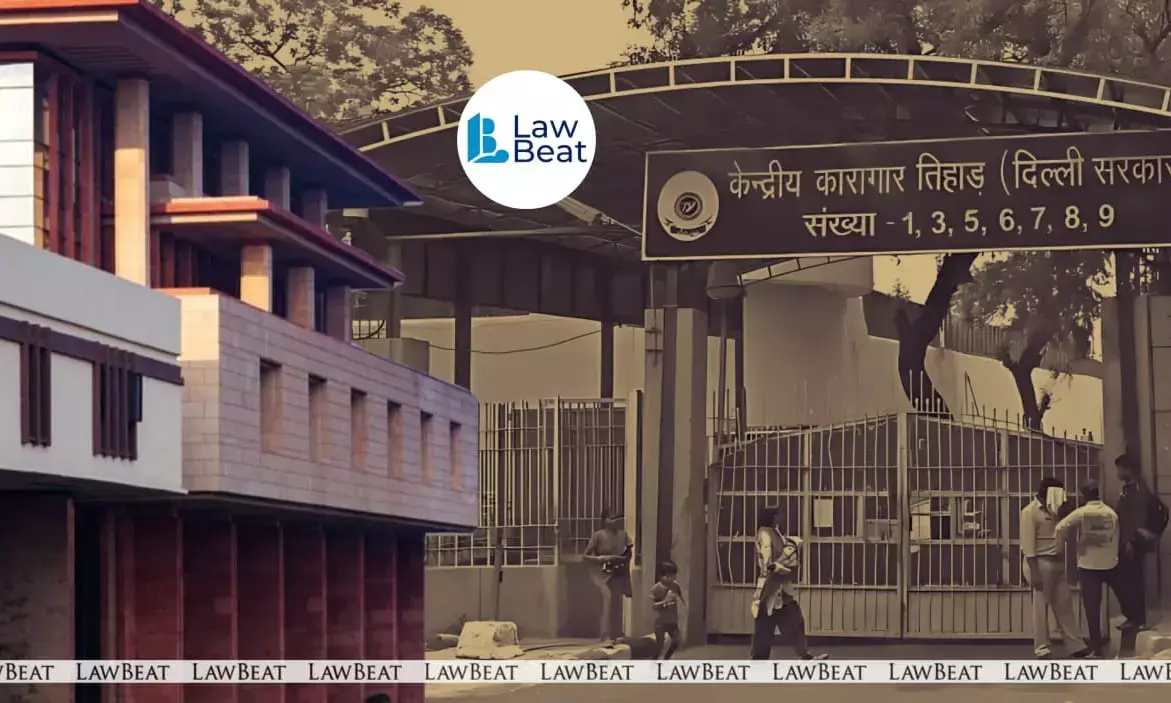Delhi HC Declines To Entertain PIL On Removal Of Afzal Guru, Maqbool Bhat’s Graves From Tihar

The plea before the Court sought removal of Afzal Guru, Maqbool Bhatt graves from Tihar Jail
The Delhi High Court on Wednesday declined to entertain a Public Interest Litigation (PIL) seeking the removal of the graves of terrorists Mohammad Afzal Guru and Mohammad Maqbool Bhat from the premises of Central Jail, Tihar.
Filed through Vishwa Vedic Sanatan Sangh, the plea sought directions from authorities to relocate the mortal remains to a secret location, if necessary, to prevent glorification of terrorism and misuse of the jail premises.
A division bench of Chief Justice DK Upadhyaya and Justice Tushar Rao Gedela heard the matter today. During the hearing, the court asked the petitioner’s counsel, Advocate Barun Kumar Sinha, to establish the violation of law. “Which law of the land has been infringed? Violation of the law needs to be first established. Something you wish cannot be subject matter of a PIL,” the bench observed.
Sinha submitted that the existence of the graves amounted to glorification of terrorists and violated prison rules. When asked when the burials took place, he replied it was in 2013. The court noted the long delay and questioned why the issue was being raised in 2025.
The petitioner claimed that the graves had become a pilgrimage site for a particular community. The bench, however, sought supporting material. Sinha admitted he had only news reports and had not annexed them.
“We understand there should not be glorification. But you say people are going there as a pilgrimage. Where is the data? If that is so, there can be directions to stop all this. But as of now, we do not know,” the Court remarked.
Observing that the matter was highly sensitive and that the government had decided on burial inside the jail in 2013 to avoid law-and-order issues, the Court noted, “Somebody’s last rites have been performed, and that has to be done with solemnity. Can this be challenged after 13 years?”
After arguing at length, the petitioner sought permission to withdraw the plea with liberty to file afresh. The bench accordingly dismissed the petition as withdrawn.
The PIL argued that the continued presence of these graves inside a state-controlled prison is illegal, unconstitutional, and against public interest “To issue a writ of mandamus directing the Respondents to remove the graves of terrorists Mohammad Maqbool Bhat and Mohammad Afzal Guru from the premises of Central Jail, Tihar, in accordance with the Delhi Prison Rules, 2018 and the Prisons Act, 1894,” the plea stated.
It added that the Delhi Prison Rules require the bodies of executed prisoners to be disposed of in a way that prevents glorification, ensures prison discipline, and upholds public order. Allowing permanent graves inside the prison, it argued, is a clear breach of this mandate.
Noting that the matter amounts to a constitutional violation, the petition stated, “Because the existence of terrorist graves in a government-controlled institution amounts to an unconstitutional sanctification of terrorism. India is a secular State under the Constitution, and no religious or political glorification of criminals or terrorists can be permitted on State premises. Allowing these graves to remain is tantamount to State recognition of terrorists as figures of reverence, thereby indirectly promoting terrorism and communal polarization.”
It was further argued that the presence of the graves had turned Tihar into a “site of radical pilgrimage”, where extremist elements gather to venerate convicted terrorists. “This not only undermines national security and public order, but also sanctifies terrorism in direct contravention of the principles of secularism and rule of law under the Constitution of India,” the plea added.
The PIL highlighted that such an act is contrary to the Prisons Act, 1894, the Delhi Jail Manual, 2018, and established prison regulations, none of which permit the construction of religious structures, shrines, or graves within jail premises. It also pointed out that neither the Delhi Prison Act, 2000 nor the Delhi Prisons Rules, 2018 provide for the burial of convicts inside prisons.
The petitioners sought urgent intervention of the Court to order removal of the graves and relocation of the remains in a secure, undisclosed manner, citing the handling of executed terrorists such as Ajmal Kasab and Yakub Memon, where every precaution was taken to avoid glorification.
Additionally, the plea cited the Delhi Municipal Corporation Act, 1957, particularly Section 397, which prohibits burial at undesignated sites. It also warned of health risks, noting: “The existence of graves inside the jail premises poses a serious risk of contagious and dangerous diseases to both the inmates and the employees of Tihar Jail.”
The plea further submitted, “The Jail Manual provides that bodies of executed prisoners are to be disposed of in a manner that maintains prison security, discipline, and public order. Nowhere does it permit the construction of permanent graves or shrines inside prison premises. By allowing such graves, the authorities have set a dangerous precedent that undermines the very purpose of prison discipline and order.”
Case Title: Vishwa Vedic Sanatan Sangh Through its General Secretary & Anr. v. Union of India
Hearing Date: 24 September 2025
Bench: Chief Justice DK Upadhyaya and Justice Tushar Rao Gedela
